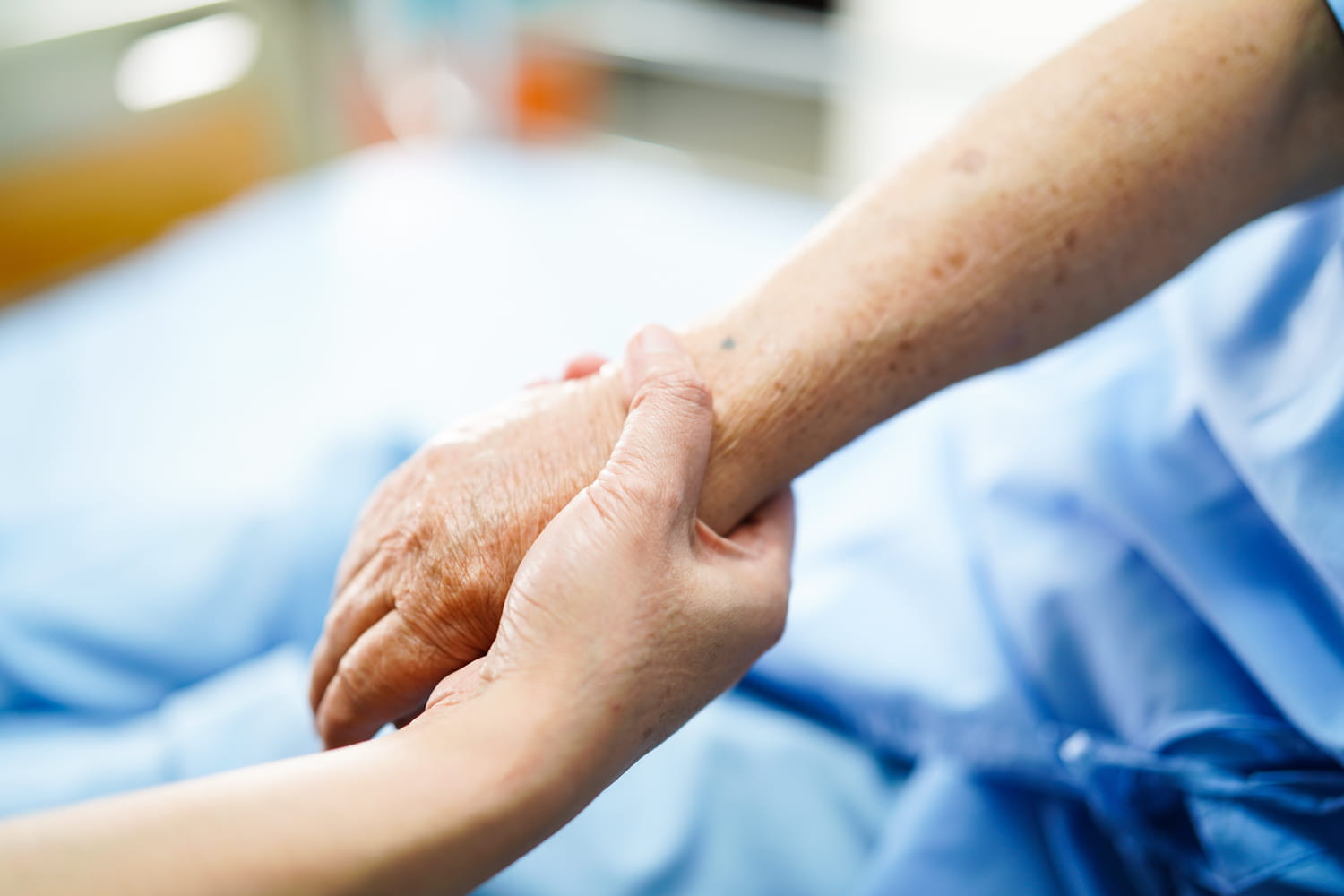Between mental overload, double days and pressure to “succeed in everything”, women’s mental health is put to the test. In It’s not you the problempsychologist Pierre Bordaberry dismantles the myth of individual responsibility. It reminds us how much our social, professional and family environment influences our well-being.
Through this interview, he invites women to free themselves from guilt. He encourages them to listen to their real needs and to rethink mental health as a collective matter, not a personal one.
Your work is entitled It’s not you the problem. This message particularly resonates with women, who often feel guilty about their difficulties. Why was it important for you to deconstruct this idea of absolute individual responsibility?
Pierre Bordaberry: I believe it is important to understand the problems to better solve them. Our psychological difficulties cannot be understood as a virus. They always result from biological, psychological and social factors. This is true for obesity, for example, which depends as much on psychology as on the choices of the food industry.
If we simply individualize problems, we miss essential levers to help people. It can even make certain situations worse, such as depression or obesity.
As a psychologist, what field observation struck you the most and pushed you to write this book?
Pierre Bordaberry: Studies in clinical psychology, although it often refuses to realize it, are extremely based on a medical model where the psychologist identifies a problem and resolves it with his patient. But through seeing patients, I understood that some would not have needed me if their environment had been different: social worker, family or less violent work… Curious, I became interested in the influence of the environment on the mental health of women and men. This is what pushed me to create videos about violence and to write this book.
You show that modern society promotes depression, anxiety, obesity and sleep disorders. Do these pathologies affect women and men differently?
Pierre Bordaberry: Indeed, men and women are not affected in the same way depending on the different disorders. There is some data that shows potentially biological differences in depression, for example. On the other hand, many differences are linked to our environment.
For example, in terms of work, we see that people place a lot of emphasis on the arduousness of men’s jobs because we understand that putting your body to work on houses to be built is painful. But we forget women’s professions with high psycho-social risk, such as caregiver or cashier. Daily demands are high and autonomy is limited, which increases stress.
If we add the domestic burden and caring for children, the psychological burden is even greater for women. This affects anxiety, lack of sleep and weight gain in an overly demanding environment.
Mental overload, double days and contradictory injunctions weigh heavily on the psychological health of women. What do you recommend?
Pierre Bordaberry: It is difficult to give advice without understanding each situation. But we can identify several axes depending on the studies.
If one feels irritability, sleep disturbances or muscle pain, the psychological demand is too great. The first reflex is to reduce your load. Delegating, delaying, asking for help or lowering your demands are effective strategies. Obviously, this is easy to say, but much more difficult to put into practice. And this is where the environment will make our task easier or not, because a mother whose husband has left, isolated without family or acquaintances will have a much more difficult time putting all of this in place in our society where parents are quite isolated.
We can also gain autonomy And adapt your organization. But this is more difficult than the first solution, because changing our work rhythm, moving the family according to our needs sometimes meets a lot of resistance.
If we start to feel bad, maybe it’s not that we’re not ” enough“. Life can be too demanding. Sometimes we have to reorganize it according to our needs. Often we make unnecessary efforts imposed by society or family. For example, being demanding in cooking for friends who don’t care about the result. Starting from your needs is a way to release the mental load.
To what extent does social pressure linked to performance and aesthetic standards weaken women’s self-esteem?

Pierre Bordaberry: Social pressure regarding aesthetic standards does not affect everyone despite what we believe. People with low self-esteem or emotional lack are more sensitive to it. Beauty is sold to them as a solution to loneliness or lack of value. This phenomenon also exists among men, but on a smaller scale, because there is less emphasis on their bodies in the media. On average, younger women have lower self-esteem than younger men.
The problem arises when this belief creates obsessions, such as anorexia, or prevents one from seeking more reliable solutions to well-being. Many people think they will solve the problem by controlling the body even more through dieting, which, according to researchers, makes the problem worse and creates eating disorders such as bulimia. Our body doesn’t really like the idea that we can deprive it of vital elements and will compensate later.
You propose several avenues: legislation, prevention, mutual aid, personal freedom. What concrete measures could improve the mental health of women, particularly in the world of work?
Pierre Bordaberry: There are ten thousand things to do, whether as a couple, at work, as a family… with solutions to prevent violence and inequalities. Overall, we should already prevent the violence to which women are more frequently subjected, such as sexual violence (and this then requires measures to block the aggressors, defend the victims and prevent recidivism) and sexist discrimination (with work of self-defense and education of men).
And finally, this can be helped by the law and the organization of society. For example, longer paternity leave already leads to greater participation of the spouse in parental life and leads to greater equality within the couple.
In the current debate on mental health, what role should companies play in supporting their female employees, who are often exposed to higher stress?
Pierre Bordaberry: Work is one of the environments most prone to psychological disorders and according to WHO reports, workers are part of vulnerable populations. In studies, we observe that it is the work environment more than individual attitudes that creates problems (for example, harassment is more linked to a bad work environment than to psychopathic individuals). Companies are therefore responsible for their employees. Additionally, the healthier a person is, the more engaged and productive they are at work.
According to the 2011 Gollac report, several things can be tried, such as increasing autonomy with initiatives such as job crafting or schedule adjustments which then allow more autonomy and therefore better balance professional and personal life. We can also improve social relations by adapting the managerial framework which directly influences the relations between employees. We have seen, for example, that authoritarian or lax executives reduce social support in the company and increase ill-being. In the same vein, if sexist discrimination is not directly addressed, then this opens the door to more frequent sick leave/turnover.
Finally, there are factors to take into account such as uncertainty at work. The more uncertain an employee is (about its future, its role and business changes…) the more he suffers. Withholding information is a method that is of little benefit to a company except when it (or its executives) is just trying to save face or manipulate their employees. This can have an even greater impact on women who are also responsible for the organization and uncertainty of family life.
Finally, what central message would you like to convey to the women who read you? Those who feel exhausted, guilty or “not enough” in a society that always demands more.
Pierre Bordaberry: In our lives, we encounter ten thousand different instructions about life, about what we should be or do. Some are even contradictory to each other. Most of them lose us and take us away from what is good for us. When our body feels exhausted, depressed, anxious… it’s sending the message that something is wrong.
Before concluding that we are sick and that we must take pills, it is better to try to understand what our body requires and rearrange our life according to that.
Sometimes, this means yelling at your partner about household chores, passing a law, going to demonstrate topless in front of the assembly, or even pissing off your shrink and his stupid ideas. This process is called self-determination and has a great impact on the mental health of women and men.










